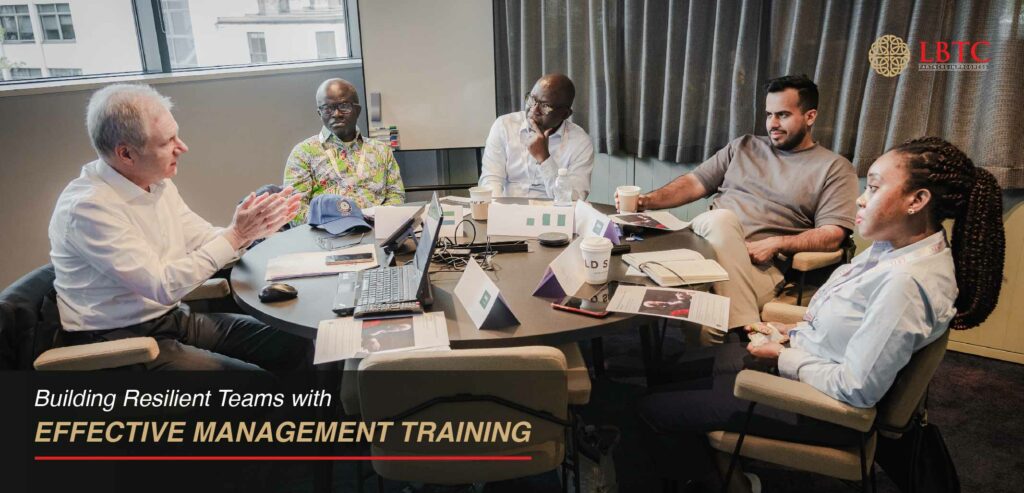
Resilience is an essential attribute that characterises any team that thrives. Resilient teams recover and engage and bring results despite the difficult conditions. But this is more than merely recruiting raw skills; it is about being very active and proactive and a strategist with effective management training.
This blog would overlook the chief elements of strong management training that can start building resilient teams that could steer organisations through challenges and grab opportunities.
Understanding Resilience within a Team
The concept of resilience in a work team is described as the ability of a team to receive, adapt to, and recover from adversity. Resilient teams are peculiar in various attributes that include:
- Adaptability: The capacity to set oneself according to the demands and change strategies whenever required.
- Strong Communication: Transparent and open channels that foster trust and clarity.
- Collaboration: When a team shares a common purpose and ability to work together.
- Emotional Intelligence: Awareness and control of emotions to maintain dynamic positivity.
The Role of Management Training
Management training equips an individual with various tools, knowledge, and evidence in management, eventually developing resilience in a team. The focus of the training is always on.
Leadership Skills Empowerment
- Effective leaders demonstrate resilience and inspire those around them. Training equips managers to make informed decisions, address challenges, and lead by example.
- The Association for Talent Development recommends emotional intelligence-based programs to enable managers to empathise, communicate effectively, and build trust within their teams.
Promoting a Growth Mindset:
- Resilience thrives where the ambiguity of challenges turns into opportunities for growth. Therefore, management training instils in manager’s minds the importance of fostering a culture within an institution that encourages learning, experimentation, and innovation.
- Managers will also be taught to discern and celebrate the small wins that keep the team tracking even in tough times.
Strategic Communication Techniques:
- Effective and consistent communication is the foundation of resilient teams, where management training ensures managers can deliver clear, motivational, and results-oriented messages.
- Active listening will also be emphasised as a tool for managers to understand better the concerns that must be addressed.
Stress and Conflict Resolution:
- Disputes arise, and stress is a natural part of any work environment. Conflict management training will teach the tools that managers should use to settle disputes constructively while also helping team members manage their stress levels.
- It is a forum where issues find solutions faster before they get escalated.
Developing Resilience Through Training Programs:
Organisations might foster resilience through several training initiatives, and to this end, here are a few practical steps:
Scenario-Based Training:
- Repeated enactment of real-world problems and crisis scenarios during training prepares managers and teams to handle similar situations with confidence.
- Role-playing and case-study teaching provide added insights into decision-making in time-critical situations.
Workshop on Emotional Intelligence:
Training managers and their members about emotional intelligence will help them recognise and control their emotions, leading to better collaboration and less stress.
Stress Management Programs:
- Training managers to recognise burnout signs prepares them to apply stress-reduction methods for a healthier and more productive workplace.
Opportunities for Continuous Learning:
- Ongoing professional development would keep the team up-to-date with the latest tools and techniques, developing their adaptability and resilience.
Response Mechanism:
- It works in a manner that encourages regular feedback flows between managers and their teams, thereby building a culture of continuous improvement and mutual trust.
Measuring the Impact of Management Training:
For an organisation to have the programs measure management training as a good and effective investment, it must measure input and outcome indicators. Some of these indicators would be:
- Increased Performance of the Team: Improved productivity and achieving goals are signals of impeccable leadership and resilience.
- Employee Involvement: The higher the engagement, the greater the extent of support and adaptability in the team culture.
- Ongoing Retention: Very resilient teams have fewer turnovers and will be valuable to the employees, who will feel the concern and support.
- Feedback Scores: What team members say about managers is called positive feedback. By that measure, you would know whether the training has succeeded.
Conclusion: Given the very rough landscape these days, creating a resilient team is crucial to any organisation’s sustainability. Essential management training targets the leaders through which they can, in turn, access the necessary tools and strategies that help them empower and direct their teams. Investing in training programs with powerful modules and methods means the organisation enriches managers and the overall work culture in which resilience thrives.

Leave a Reply